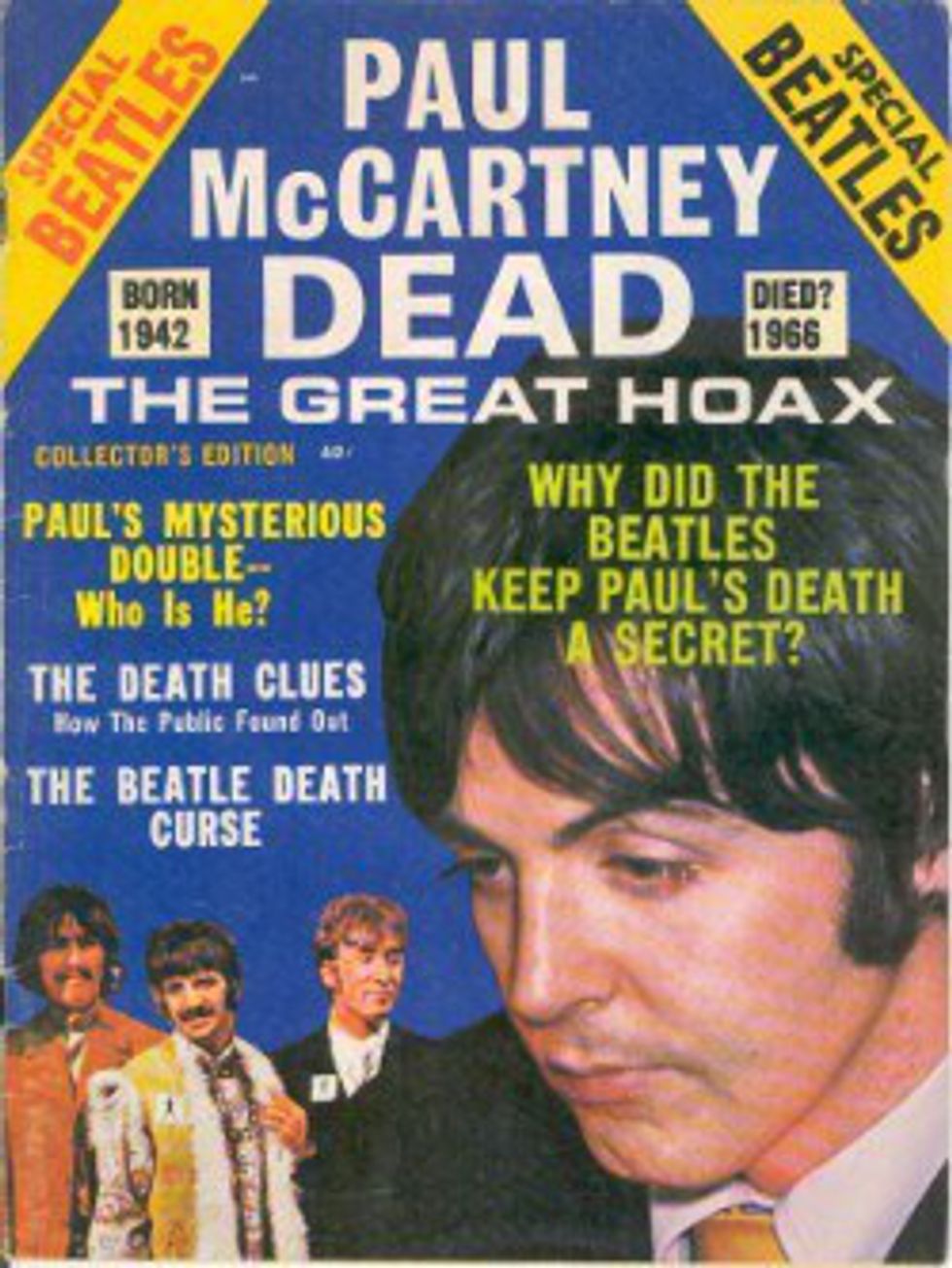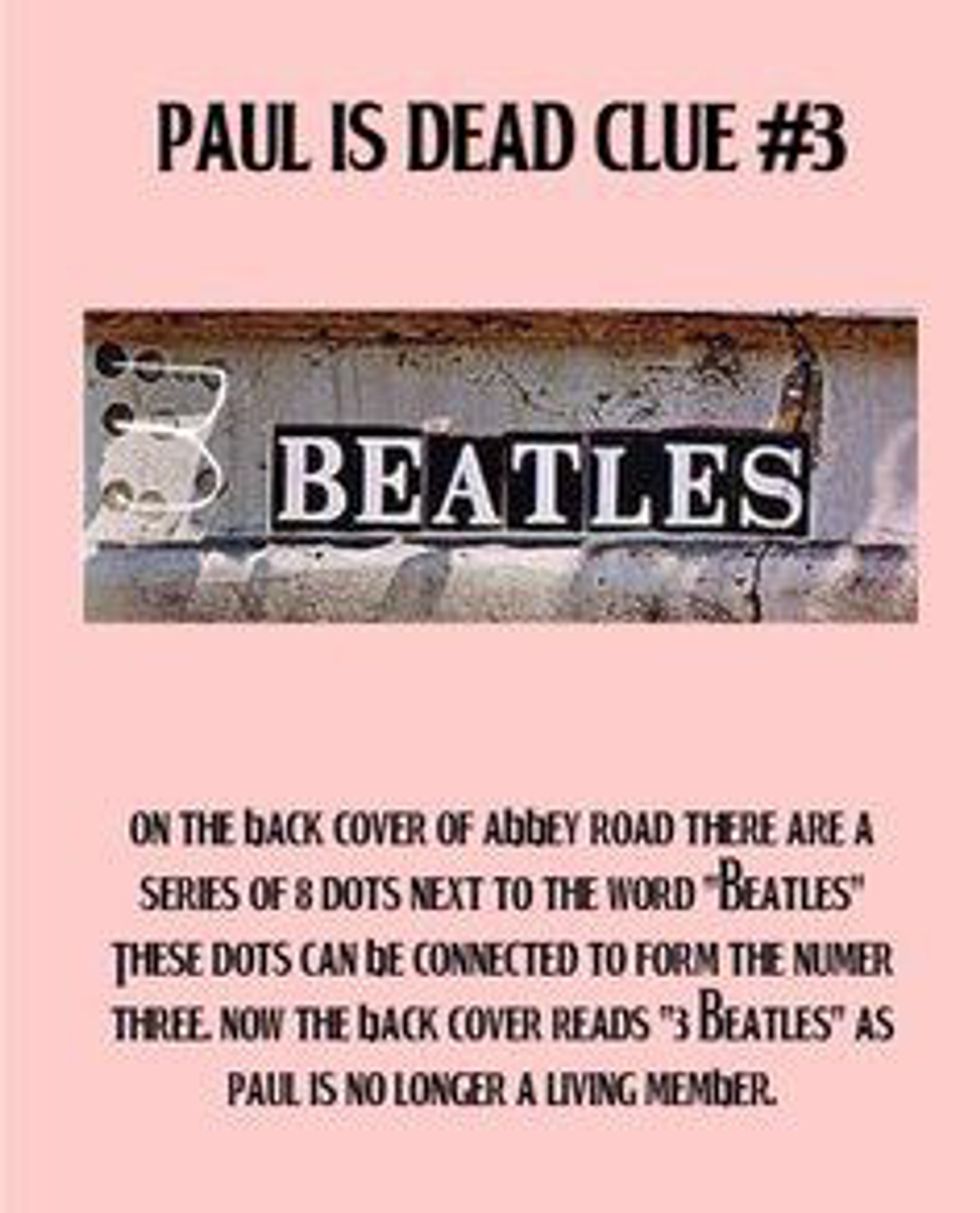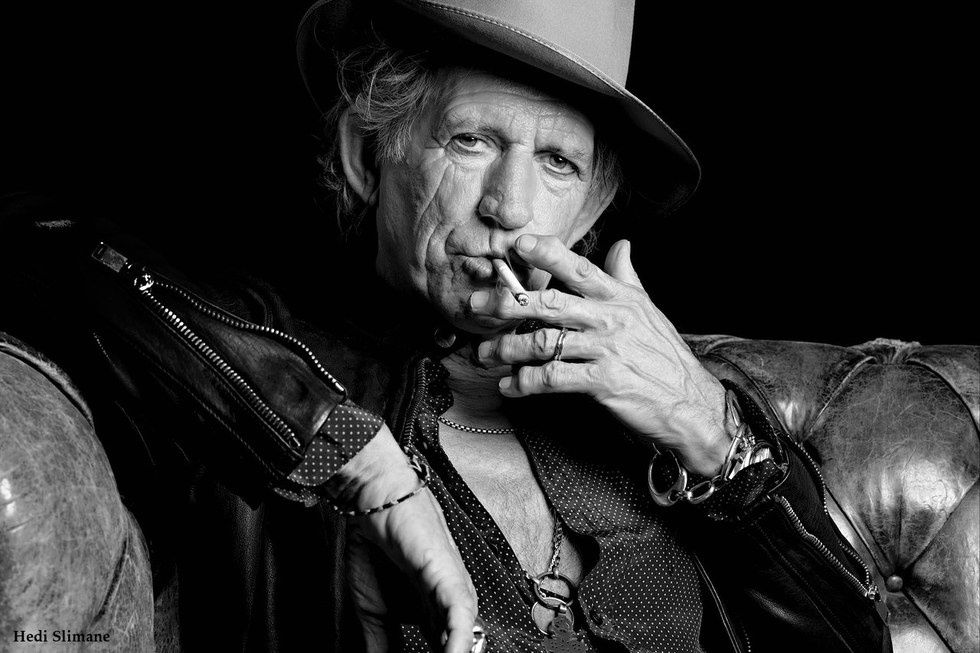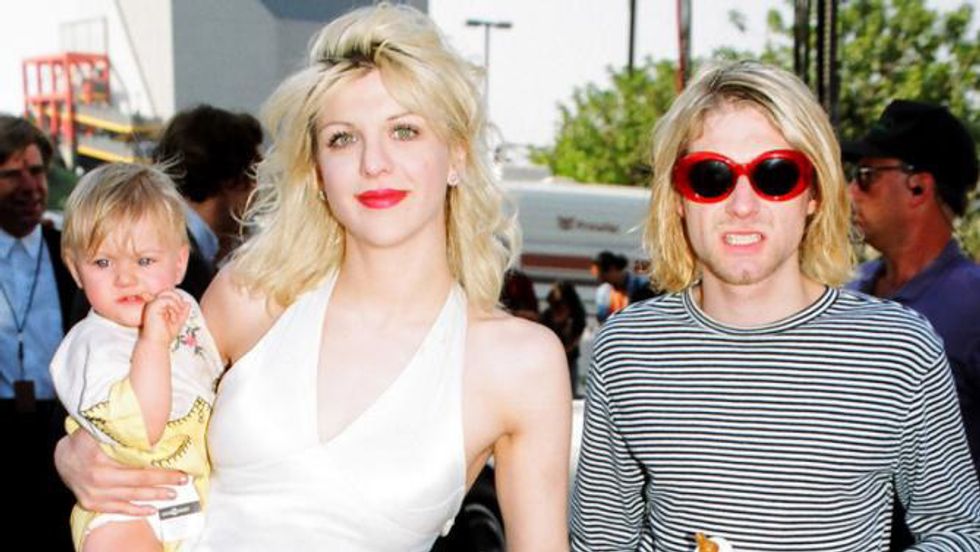Whether it be the unprovoked creation of an avid fan, an exaggeration of an innocent truth, or a sleuth-like compilation of seemingly coincidental evidence, conspiracy theories and myths have plagued rock and roll since the genres’ conception. Typically, the wild controversies attached to the already legendary musicians are laughable, desperate at best. However, there are a few, founded in just enough truth and evidence, that may have you thinking twice.
Here are the 5 best myths in Rock and Roll:
5. Paul McCartney died in 1966

Originated by a college newspaper, legend has it that McCartney died in a horrific car accident, causing the Beatles’ record company, who feared suicidal reaction from the fanatical fan base and a crippling drop in record sales, to force the remaining band members into adopting a replacement Paul. From that moment on, the three remaining heartthrobs left countless clues in songs, album covers, and interviews to reveal to only their most dedicated fans that McCartney had indeed tragically died. After a radio DJ played the Beatles’ “Revolution No. 9” backward, in which the record chillingly pleas, “turn me on dead man,” the myth was bolstered to a status of nationwide hysteria and a plethora of reportedly indisputable clues were brought forth.
According to some, the cover of Sgt. Pepper’s Lonely Hearts Club Band is an acknowledgement of a new band, one without McCartney. When held up in a mirror, the centered kick drum reads “1 ONE 1 X HE DIE,” with November 9th being the alleged day of his untimely accident. A saintly hand protrudes over McCartney’s head and a wreath in the shape of a bass guitar, McCartney’s instrument, are just a few of the signs the iconic cover reveals. Similarly, the cover of Abbey Road features a shoe-less McCartney (or McCartney look-alike), out of step with the others, in a sort of funeral procession. With Lennon the angel dressed in white, Starr the undertaker in black, and Harrison the grave digger in jean, the cover has been intensely scrutinized as to note infinitesimally small details that support the “Paul is dead” claim. A license plate in the album cover’s background reads “28IF,” referencing the fact that McCartney would have been 28 if he had survived the car accident. The McCartney figure crossing the street also holds a cigarette in his right hand, despite the fact that the real McCartney is left handed.
In addition to the album covers, several Beatles’ songs apparently contain clues referencing McCartney’s untimely death. “A Day in the Life” details a tragic car accident, while when played in reverse, “I’m So Tired” apparently features Lennon lamenting “Paul is dead, I miss him, I miss him.” Similarly, in the final moments of “Strawberry Fields Forever” Lennon can reportedly be heard confessing, “I buried Paul.”
The legend’s most convincing lyrical evidence relies on the belief that the walrus was a symbol of death in ancient Greek and Viking tradition. On the cover of Magical Mystery Tour, McCartney is dressed in a black walrus costume. Thus “I Am The Walrus,” is Lennon’s account of McCartney’s fatal crash, with the later line, “here’s another clue for you all/ the walrus was Paul” on the song “Glass Onion” only confirming this belief. The evidence supporting this theory is endless; websites, books, and films have been devoted to the topic. In fact, the theory was so well believed in the late 60’s that LIFE magazine actually sent an interview crew to track McCartney down and prove he was still living. Despite explicit denial of the myth by The Beatles themselves, a shocking amount of fans still cling to the theory, however absurd it may seem.
4. Subliminal messages can be unlocked when songs are played backward
Rock and roll has been condemned as “the devil’s music” by almost everyone opposed to the genre. However, some theorize that this claim takes a much more literal significance when certain songs are played backward, and the satanic messages hidden within become clear.
Backward masking is the phenomenon of storing secret messages in songs that are only audible when the track is played in reverse. Largely fueled by concerned parents and authorities who sought any viable reason to dismantle the rock revolution, the theory of backward masking became a serious point of contention, and several lawsuits, throughout rock music’s history. In 1985, metal band Judas Priest was famously sued by the families of two young men who gruesomely took their own lives after a night of drugs, drinking, and listening to Judas Priest. The families claimed that the 18 and 20 year olds were driven to such drastic behavior after being subjected to the subliminal messages throughout the band’s music, chiefly, the existence of the phrase “do it” hidden within the song “Better By You, Better Than Me.”
Though the case was ultimately dismissed, its outcome did not deter those who claim to hear a variety of “brainwashing” material on some of the most famous songs in music history. Queen’s “Another One Bites The Dust” convinces listeners that “It’s fun to smoke marijuana” when the title line is played backward.
Similarly, though markedly more sinister, Led Zeppelin’s “Stairway to Heaven” was condemned as an ode to the devil according to a prominent evangelist preacher who swore that in reverse, the song relays depraved messages such as “Here’s to my sweet Satan” to unsuspecting listeners.
Intentional or not, the proposed lines can undoubtedly be heard when the song is played in reverse. Years after rock music’s decline, many cling to the belief that these messages seep through and alter the innocence of each listener, and every listener to come.
3. Keith Richards underwent a complete blood transfusion
Over the years, the debaucheries of Keith Richards, The Rolling Stones’ rebellious guitarist, have rarely been kept secret; his prominent drug habits being no exception. Legend has it that on the eve of the group’s upcoming 1973 European tour, Richards’ heroin addiction was so debilitating that he sought experimental treatment in Switzerland, undergoing a complete blood transfusion to effectively overcome his drug abuse.
Confirmed and embellished by a deeply detailed account in the Rolling Stones’ biography written by Richards’ former assistant, the myth has leeched from lore to fact. The theory is, with Richards having no time to undergo another painful, elongated, natural withdrawal episode, he was recommended the drastic procedure by a friend who swore it had cured him just months earlier. Richards boarded a Switzerland-bound plane after the Stones’ concert on September 19, spent a few hours undergoing the procedure, and emerged on stage September 26, the blood of another coursing through his veins. Though the tale is denied by Richards, whom maintains that he originated the myth as a sordid joke, fans and followers are adamant that Richards’ old age, despite the drug and bodily abuse he perpetuated throughout his youth, is due to the new life he received during that mysterious Swiss trip. For a man who admitted to snorting his own father’s ashes, nothing is impossible.
2. Jim Morrison is still alive
Legendary Doors’ front man Jim Morrison was found dead in his Paris home’s bathtub July 3, 1971 by long time girlfriend Pamela Courson. By July 7, his death certificate was signed, coffin sealed, and body buried, with the official cause of death being ruled a heart attack. “Natural cause of death”, an anticlimactic end for a rock star whose precipitous life style resulted in death scares nearly every weekend, was deemed impossible by the loyal fans and subsequent generations who insist that Jim Morrison is simply not dead.
When Morrison’s manager arrived in Paris to attend the quiet, quickly prepared funeral, the eerie finding was that the only souls who saw Morrison’s body were his devoted Pamela and an untraceable doctor, whose name had been conveniently forgotten. Though the lack of multiple witnesses would have been enough to enflame rumors, the cause of Morrison’s death is so hotly contested that this myth continues on even today.
Parisians insist that Morrison overdosed, after he was reportedly seen in a French nightclub known for its shady heroin connections the night of his death. In line with this claim, Morrison was found in a bathtub, the first place to attempt to revive an overdose victim. Others claim that Morrison was assassinated by leftist, counterculture-opposed political vigilantes while the less conspiratorially-inclined insist that his alcohol abuse was the only logical source of his demise. For many though, Morrison’s distaste for his own stardom, and his knowledge that The Door’s latest album was being critically adored and reigniting their fame back in the U.S. was reason enough for Morrison to act on his long discussed wish: to disappear.
Morrison had dreamed, and at times threatened, to abandon the infamous name he had made for himself and start his life anew, in complete anonymity and isolation. Those who new him, including fellow bandmates Ray Manzarek and John Densmore have perpetuated this theory, with Densmore often conceding that “Jim was crazy, and would be more capable than anyone I have ever known for faking his own death.”
some claim that Morrison is living as a homeless man in New York
With no autopsy ever performed, the conspiracy has flourished and Morrison lives on, through his music and perhaps even in physical form.
1. Courtney Love killed Kurt Cobain
On April 8, 1994, Nirvana front man Kurt Cobain was found dead in his Seattle home, victim to a self-inflicted gunshot to the head. However, amidst chilling inconsistencies, exposed lies, and medical impossibilities, the idea that Courtney Love, Cobain’s wife and the mother of his child, executed a plot to kill Cobain gained believability. Chiefly propagated by Tom Grant, a Private Investigator, the legend has it that the infamous couple was on the cusp of divorce, and with the looming threat of losing the fame and wealth that Cobain provided, Love hired an assassin to murder Cobain, ensuring her the security that could only be promised through his tragic death. Though admittedly conspiratorial, this theory has a plethora of haunting support.
According to Love, Cobain’s suicide came after months of inescapable depression, as voiced by the letter found next to his body, and a previous attempt to overdose on prescription Rohypnol in Rome. However, friends and family of Cobain insist that neither are true. After pressure from Love to address his debilitating drug problems, Cobain, an established heroin addict, checked into a Southern California rehabilitation center on March 31. He fled the following day. After his disappearance, Love hired P.I. Tom Grant to find Cobain. Grant insists that throughout the investigation his interactions with Love were muddled with ceaseless deceptions, preventing him from finding Cobain’s body. Love filed false police reports, provided information contradictory to what Cobain’s friends and family were asserting, and lied repeatedly to Grant. Even if Love’s erratic dealings and apathetic reaction to her husband’s death were justified, the crime scene itself sparks endless questions.
Grant and the countless others who believe place much of their murder theory on the fact that Cobain had been injected with three times the lethal dose of heroin immediately prior to his death, which would have incapacitated him and inhibited him from lifting, aiming, and firing the shotgun at himself. The shotgun itself lacked any fingerprints whatsoever, and the gun barrel and bullet shell were on the wrong side of Cobain’s body if he had positioned the shotgun in his mouth as reported. The “suicide note” found next to Cobain’s body detailed only his dissatisfaction with the music industry, rather than with life itself, and is believed to have been simply ripped out of his personal notebook. After his initial signature on the note, a final portion appears, in handwriting different from Cobain’s, that feebly encourages Love and his daughter to continue on without him.
Grant’s case against Love continues on with a dizzying amount of evidence, covered in full in the novel and documentary that detail his findings. The truth is, the Seattle police department failed to gather any forensic evidence proving Cobain’s death was in fact a suicide, and his body’s cremation a few days after its discovery leaves this theory one that will never be proven…or disproven.








 some claim that Morrison is living as a homeless man in New York
some claim that Morrison is living as a homeless man in New York





 The minimum wage is not a living wage.
StableDiffusion
The minimum wage is not a living wage.
StableDiffusion
 influential nations
StableDiffusion
influential nations
StableDiffusion











